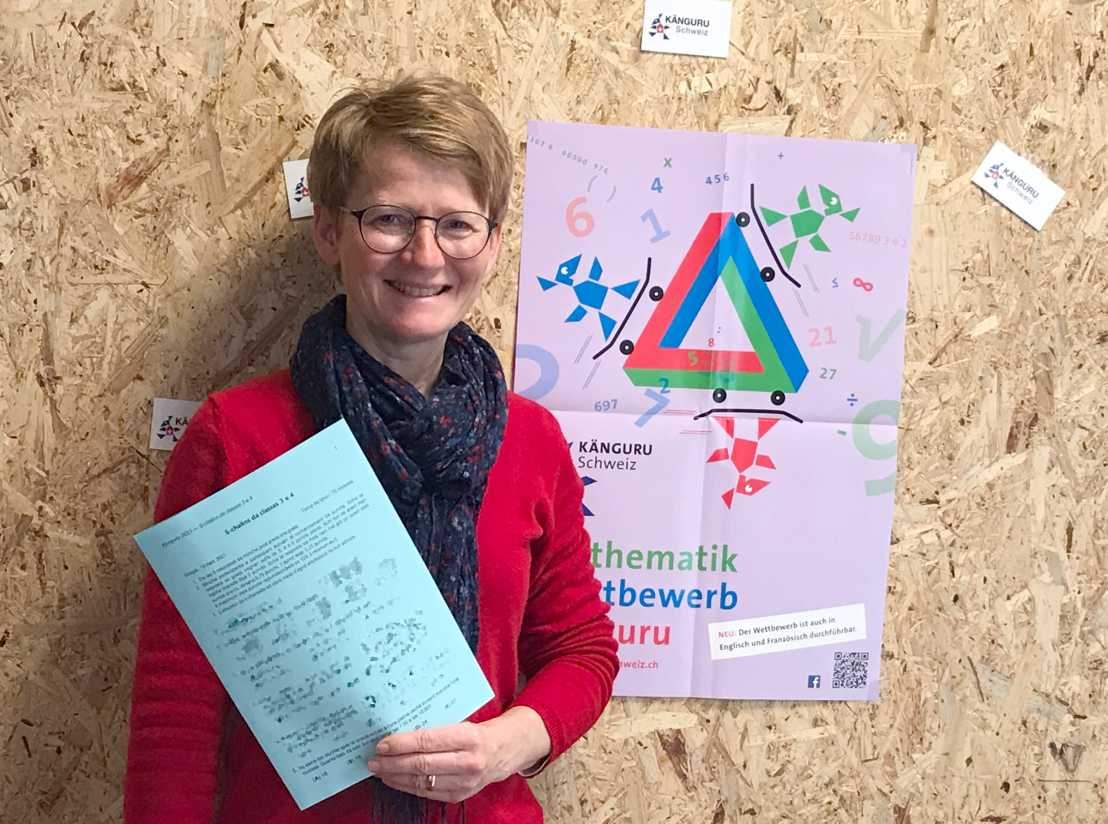Kangaroo competition held for the first time in the Vallader dialect
Around six million children and young people from 92 countries took part in the Mathematical Kangaroo competition on 18 March 2021. To ensure that all the young participants understand the maths problems, the questions have been translated into the languages of the participating countries. And with the inclusion of the Romansh dialect Vallader, all Swiss national languages are now represented in the competition.

Beatrice Müller Triebs is a teacher for special educational needs at the school in Zernez and is responsible for the primary school classes and the provision for gifted and talented pupils. Together with those responsible from the external page Kangaroo Switzerland Association and the external page Lia Rumantscha, the umbrella organisation for the Romansh language, she campaigned to have the competition tasks translated into Vallader.
In the following interview, she describes how she motivated her fellow teachers to participate and explains why language plays an important role in the competition.
How did you find out about the Kangaroo competition and why were you interested in organising it in Vallader?
I came across the topic of the Kangaroo competition during my Certificate of Advanced Studies in Gifted Education and also learned a lot from the experiences of colleagues who had previously held the competition at their schools. I found the idea of trying to solve the same mathematical problems as six million other children and young people on roughly the same day fascinating and did not want to deprive our pupils of this opportunity.
We had already decided to set different monthly tasks during the school year where our pupils are able to demonstrate their skills and talents and the month of March was dedicated to challenging them in mathematics. I therefore suggested the Kangaroo competition as the monthly task for our 3rd to 9th graders and all the teachers registered their classes to participate!
Why was the right language a prerequisite for participating in the competition?
At primary level, Romansh is a basic requirement for the competition because our children are taught mathematics exclusively in Vallader. They are only taught mathematical concepts in German as of secondary school. It was therefore clear that the competition first had to be translated into Vallader so that our primary school pupils could take part.
And how many classes from the Grisons took part in the competition?
In the run-up to the competition, we advertised on the teachers’ platform Conferenza Generala Ladina about the possibility of participating in the Kangaroo competition in Vallader. In response to this, Tarasp also registered to take part.
Here in Zernez, exactly 99 of our 3rd to 9th grade pupils took part – and that is something I am very pleased about! As soon as we get the results, we will honour the best pupils.
Is there anything else that you would like to say about this experience?
I’d like to thank the many volunteers who helped out and the Kangaroo Switzerland Association for making it so easy to organise!
Kangaroo – one of the world's largest mathematics competitions
Kangaroo of Mathematics (German: "Känguru der Mathematik") is a mathematical multiple-choice competition for around six million participants in many European and non-European countries. It that takes place once a year on the third Thursday in March in all participating countries.
The aim of the competition is to encourage school pupils to think about maths in a fun way. An additional motivation for them to take part is also the fact that millions of other children are working on the same maths problems on the same day in lots of different countries worldwide.
Kangaroo goes Science – the girls day
The Department invites the hundred best girls who have taken part in the Kangaroo competition to visit the ETH Zurich. At the Kangaroo goes Science day girls can celebrate their outstanding achievements in the competition, but also have the opportunity to meet ETH students, attend workshops and visit various laboratories.